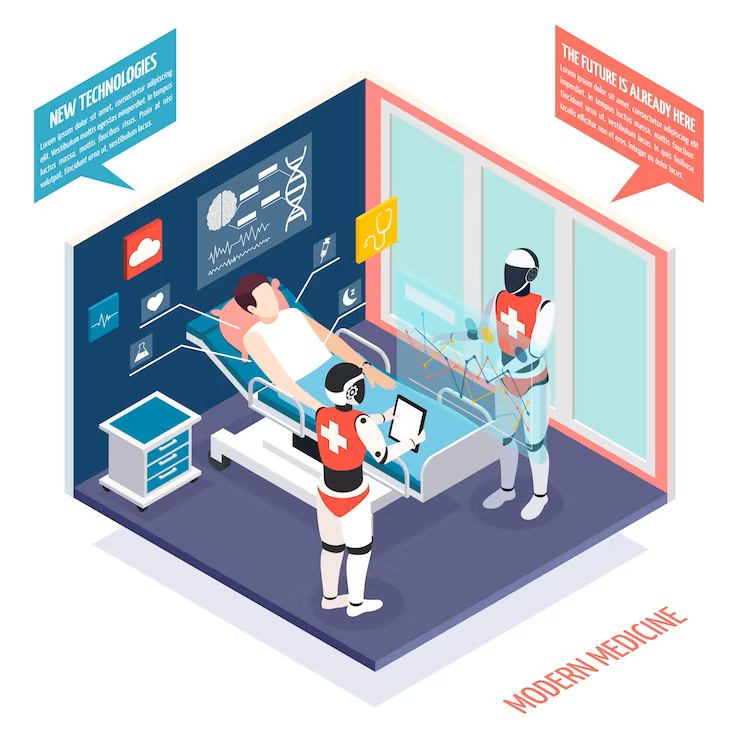Discover the potential of GPT-4 in revolutionizing the future of medicine with its impressive abilities in medical diagnosis and treatment. Learn about its limitations, ethical considerations, and the responsible use of AI in healthcare. Stay informed and adapt to new technologies for enhanced patient care.
GPT-4’s Impressive Abilities in Medical Diagnosis and Treatment
The latest update to ChatGPT, known as GPT-4, has shown remarkable capabilities in the field of medicine. It has been able to achieve a perfect score on medical licensing exams and can even excel at tasks that were once thought to require human compassion, such as delivering bad news to patients. GPT-4 is also showing potential in image processing, with the ability to read MRI or CT scans and offer medical judgments. These advancements in AI technology have led to experiments using ChatGPT to diagnose patients and suggest treatments.
The Ethical Dilemma of Trusting AI for Life-and-Death Decisions
While GPT-4’s abilities are impressive, there are ethical concerns when it comes to relying solely on AI for life-and-death decisions. AI may not have the same level of care and concern for human life as human doctors do, and the responsibility of using AI in medical decision-making ultimately falls on how doctors choose to use it. The question of when and where it would be practical and ethical to follow AI recommendations remains unanswered.
The Complexities of GPT-4’s Autocomplete System
One of the fascinating aspects of GPT-4’s capabilities is that it is essentially an autocomplete system that predicts what words should come next based on the prompts it is given. However, this autocomplete system has shown surprising abilities in solving complex tasks, including some forms of medical reasoning. It can even solve math equations by being taught more language. The phenomenon of how an autocomplete system can have such capabilities is not yet fully understood by experts in the field.
GPT-4 as a Tool to Enhance Medical Practice, Not Replace Human Expertise
Experts in the field of medicine, such as Professor Isaac Kohane from Harvard Medical School, see the potential of GPT-4 as a tool to enhance medical practice rather than replace human expertise. GPT-4 can provide valuable second opinions and recommendations for diagnoses and treatments. For example, it can recommend appropriate tests and workups for complex cases. However, it is important to note that GPT-4, like human doctors, can be wrong and may not always be honest about the limits of its understanding.
The Need for Caution and Understanding in the Use of GPT-4
Despite the impressive capabilities of GPT-4, it is crucial to exercise caution and not rely too heavily or blindly on AI in medical decision-making. Patients and doctors should be aware of the limitations of GPT-4 and understand that it is a tool that requires skilled and responsible use. AI, including GPT-4, is not a substitute for human expertise and should be used as a complement to human judgment and clinical experience.
Bard vs ChatGPT: Sundar Pichai Explains Google’s AI Chatbot Strategy
The Future of Medicine with GPT-5 and Beyond
As AI technology continues to advance, with the next version, GPT-5, expected to be even faster and smarter, the future of medicine is likely to see significant changes in how healthcare is practiced. It is essential for the medical community to stay informed, adapt to new technologies, and ensure that AI is used responsibly and ethically in patient care.
Conclusion
In conclusion, GPT-4 has shown impressive capabilities in medical diagnosis and treatment, but it also has limitations that need to be considered. While it has the potential to enhance medical practice, it is not a substitute for human expertise. Caution and understanding are needed in the use of GPT-4 and other AI tools in healthcare. As AI continues to advance, the future of medicine is likely to see significant changes, and it is critical for healthcare professionals to stay informed, adapt to new technologies, and ensure responsible and ethical use of AI in patient care. It is important to strike a balance between leveraging the capabilities of AI, including GPT-4, and maintaining the human touch in medicine.

